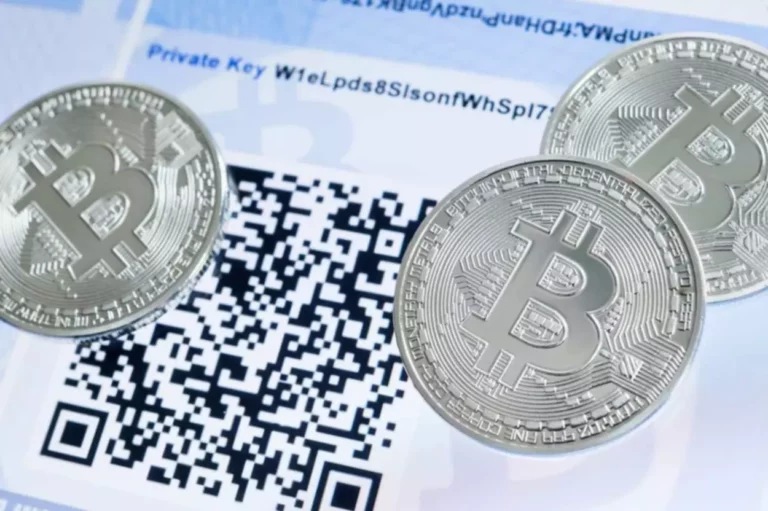The Thai government has strict capital controls in place that make it difficult for foreigners to purchase and sell THB. NDFs are a fancy financial instrument and should only be utilized by skilled investors. They carry a excessive diploma of risk and may lead to losses if the underlying forex does not perform as expected.

Share In Point In Forex Trading
They permit market individuals to lock in a forward rate or wager on a future rate movement, managing their forex publicity or taking improvement of their foreign money views. NDFs are customizable, providing leverage and flexibility to suit totally different wants and preferences. NDFs allow market members to lock in a future change price, providing safety in opposition to antagonistic actions in currency Mining pool values.
- For those seeking liquidity in NDFs, it’s essential to show to specialised monetary service suppliers and platforms that fit this area of interest market.
- NDF contracts are primarily used to hedge towards forex risk in markets the place the native forex is non-convertible or subject to significant restrictions.
- NDFs are primarily traded in over-the-counter markets between authorized monetary establishments and enormous companies.
- Another risk is counterparty risk which is the danger that the other celebration in the NDF contract won’t fulfill their financial obligations.
This key distinction has important implications for traders, as NDFs supply a approach to hedge or speculate on currencies that are not freely convertible or are topic to capital controls. Additionally, NDFs are sometimes utilized in international locations with restricted currencies, similar to China and India, where the non-deliverable forward currency record is usually used. In these markets, NDFs provide an important software for managing change price risks and accessing restricted currencies. By understanding the distinct traits, advantages, and disadvantages of NDFs and deliverable forwards, investors could make informed selections and optimize their investment strategies. In the international exchange market, non-deliverable forwards (NDFs) are a type of monetary derivative that enables traders to hedge towards or speculate on exchange fee fluctuations. In Contrast To deliverable forwards, NDFs don’t involve the bodily trade of currencies, making them a gorgeous option for traders seeking to manage their publicity to foreign money risks.
Non-deliverable Forwards Case Examine
NDF contracts are primarily used to hedge against foreign money danger in markets the place the local currency is non-convertible or topic to significant restrictions. They are commonly employed in emerging market economies where there could also be limited access to foreign change or concerns about foreign money volatility. NDF and NDS are both types of derivative contracts that permit buyers to trade in currencies that aren’t https://www.xcritical.com/ freely traded. Non-deliverable ahead (NDF) is a cash-settled contract, which means that the two parties to the contract don’t truly trade the currencies. As A Substitute, they settle the contract in cash on the predetermined change fee on the settlement date.

A non-deliverable ahead (NDF) is a two-party foreign money derivatives contract to trade cash flows between the NDF and prevailing spot rates. The main difference between ahead and NDF is that in a regular ahead contract, there’s precise supply of the underlying currencies on the settlement date. In distinction, an NDF includes cash settlement of the distinction between the agreed and prevailing market rates, without any physical trade of currencies. An NDF is a currency derivatives contract between two parties designed to exchange money flows based mostly on the difference between the NDF and prevailing spot charges. A non-deliverable ahead (NDF) is a straight futures or forward contract, the place, very like a non-deliverable swap (NDS), the events involved set up a settlement between the main spot price and the contracted NDF fee. The settlement date marks the execution of the contract, where the online difference between the contracted ahead fee and the prevailing spot price is settled.
The exchange’s monetary consequence, whether or not revenue or loss, is anchored to a notional amount. A Non-Deliverable Forward (NDF) contract is a type of derivative instrument used in foreign change trading. It is a financial contract between two parties, usually a bank and a consumer, that allows for the trade of 1 foreign money for one more at a future date at a pre-determined change fee. NDFs are generally traded in currencies from emerging markets that have capital controls or restricted liquidity. Examples embrace the Chinese Language yuan (CNY), Indian rupee (INR), Brazilian real (BRL), and Argentine peso (ARS). The major distinction between non-deliverable forwards and foreign money swaps lies within the structure and purpose of the contracts.
Non-deliverable forward (NDF) contracts are a kind of financial by-product used in overseas trade markets. Not Like commonplace ahead contracts that contain the precise exchange of currencies, NDFs settle in money and do not require the bodily supply of the underlying asset. They are typically utilized in markets with capital controls or the place the currencies are not freely convertible. The settlement amount is the difference between the agreed forward trade price and the prevailing spot change price at maturity, paid in a convertible foreign money ndf currency. Non-deliverable forwards (NDFs) provide a variety of advantages to traders, including the ability to hedge in opposition to exchange fee risks, speculate on currency fluctuations, and manage danger publicity. One of the primary advantages of NDFs is their flexibility, permitting traders to customize their contracts to swimsuit their specific needs.

Given the specialised nature of NDFs, these shoppers are additionally likely to be extra knowledgeable and dedicated, resulting in greater buying and selling volumes and, consequently, increased brokerage revenues. In a foreign money swap, the principal amounts are exchanged at the start of the contract and re-exchanged at maturity, whereas the interest payments are made periodically throughout the life of the swap. This makes foreign money swaps helpful for long-term hedging or for managing publicity to interest rate variations between two currencies. If one party agrees to buy Chinese Language yuan (sell dollars), and the other agrees to buy U.S. dollars (sell yuan), then there might be potential for a non-deliverable ahead between the two parties.
This transaction permits the corporate to hedge in opposition to its rupee exposure without handling the precise currency. Conversely, if the rupee appreciates, the company would have to pay the difference, demonstrating the chance inherent in such contracts. The key distinction between future and ahead contracts lies of their structure and trading venues.
As mentioned, an NDF is a forward contract whereby two events agree on a currency fee for a set future date, culminating in a money settlement. The settlement quantity differs between the agreed-upon forward rate and the prevailing spot price on the contract’s maturity date. This method is used to estimate equivalent rate of interest returns for the 2 currencies involved over a given timeframe, in reference to the spot price at the time the NDF contract is initiated. Different components that could be vital in figuring out the pricing of NDFs include liquidity, counterparty risk, and trading flows between the 2 countries concerned. In addition, speculative positions in a single foreign money or the other, onshore interest rate markets, and any differential between onshore and offshore currency forward rates can also affect pricing.
When a forward contract is signed, one celebration agrees to sell (the supplier), and the other get together consents to purchase (the company) the underlying asset at a set price at a set future date. An example of an NDF is a contract between a U.S. importer and a Chinese exporter to exchange USD for CNY at a fixed price in 3 months and settle the difference in cash on the settlement date. Settlement of NDF contracts is topic to timing mismatches or errors, creating danger around execution of payments. Since there is not any principal exchanged, the holder of an NDF contract is reliant on the credit high quality and monetary standing of the counterparty financial institution or dealer to meet their fee obligations. The extra lively banks quote NDFs from between one month to at least one year, though some would quote up to two years upon request. The mostly traded NDF tenors are IMM dates, but banks additionally supply odd-dated NDFs.
